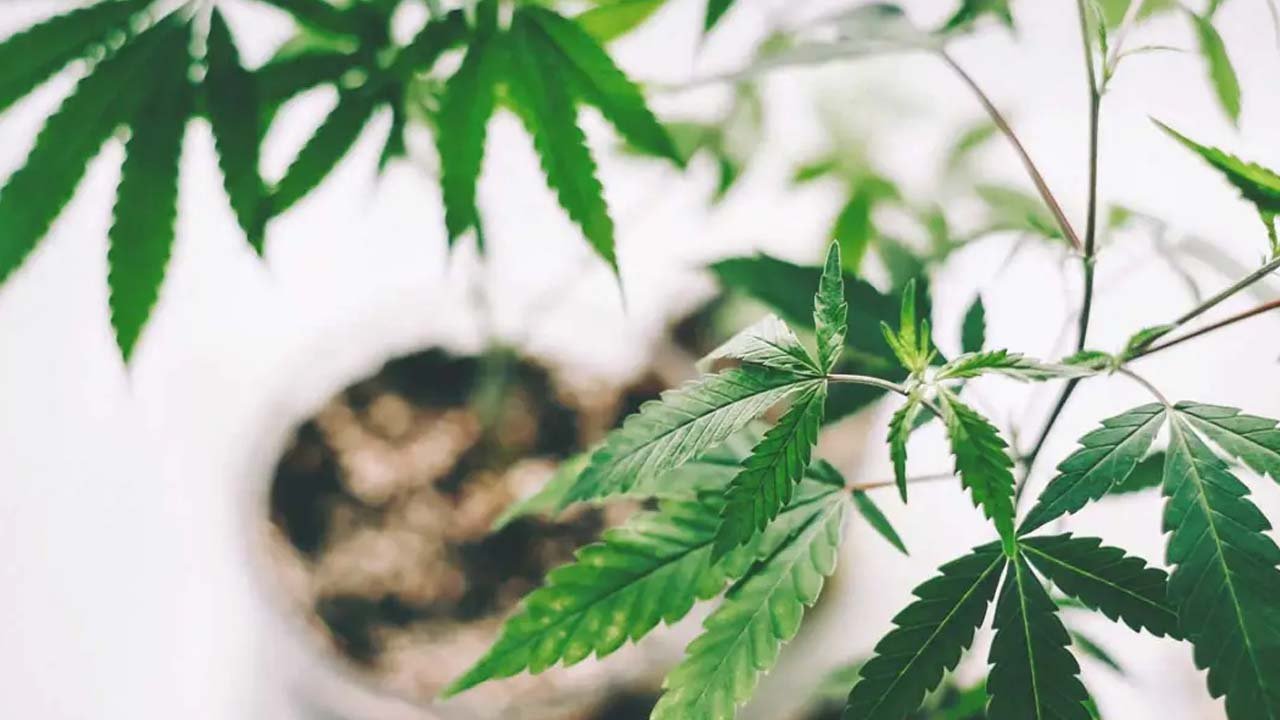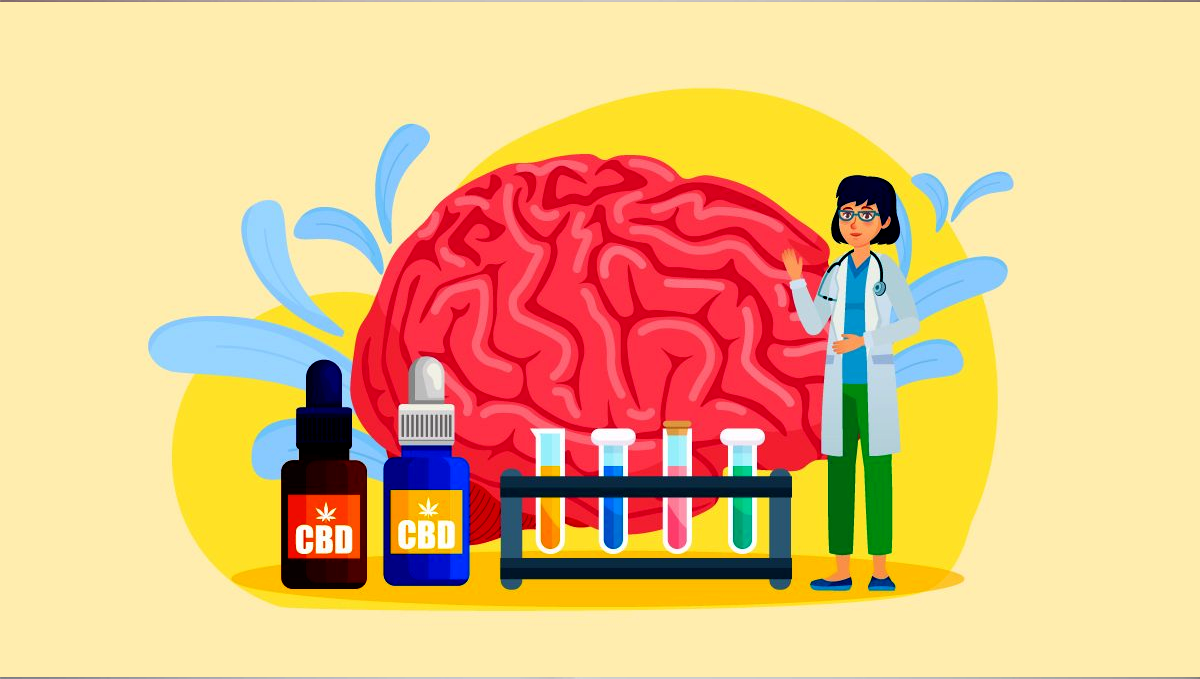Comparing the Two Titans: Full Spectrum and Broad Spectrum CBD Insights 2023

CBD, or Cannabidiol, has been making headlines for its therapeutic potential and increased mainstream acceptance. As consumers become more educated about their options, the distinction between Full Spectrum and Broad Spectrum CBD has become vital. In this comprehensive guide, we explore Full Spectrum and Broad Spectrum CBD into the profound differences, advantages, and implications of these two CBD giants.
Both Full Spectrum CBD and Broad Spectrum CBD offer unique benefits derived from the cannabis plant. As the popularity of both Full Spectrum and Broad Spectrum CBD grows, it’s essential to understand their differences to make informed decisions for individual needs.
Explore the Contents
- 1 Understanding Cannabidiol
- 2 Broad Spectrum CBD vs Full Spectrum
- 3 Full-Spectrum CBD: Embracing the Whole Plant
- 4 Benefits of Full-Spectrum CBD
- 5 Considerations
- 6 Broad-Spectrum CBD: Balancing Benefits Without THC
- 7 Understanding the Cannabis Spectrum
- 8 Advantages of Broad-Spectrum CBD
- 9 Potential Use Cases
- 10 Conclusion :Full Spectrum and Broad Spectrum CBD
- 11 FAQs :Full Spectrum and Broad Spectrum CBD
Understanding Cannabidiol
Before diving deep Full Spectrum and Broad Spectrum CBD, it’s crucial to grasp the essence of CBD. Extracted from the hemp plant, CBD is one of the many cannabinoids present but stands out due to its non-psychoactive nature and potential health benefits.

Broad Spectrum CBD vs Full Spectrum
THC Content
Broad-Spectrum CBD: Contains zero THC.
Full-Spectrum CBD: Contains trace amounts of THC, typically below 0.3% for hemp-derived products.
Entourage Effect
Broad-Spectrum CBD: Offers the entourage effect without THC, meaning it may have synergistic benefits from multiple cannabis compounds.
Full-Spectrum CBD: Provides the complete entourage effect, potentially enhanced by the presence of THC.
Psychoactive Potential
Broad-Spectrum CBD: No risk of psychoactive effects due to the absence of THC.
Full-Spectrum CBD: Minimal risk, but because it contains THC, there’s a slight possibility of psychoactive effects in sensitive individuals or at high doses.
Legality & Drug Testing
Broad-Spectrum CBD: Less likely to cause issues in drug tests or places where THC is illegal.
Full-Spectrum CBD: May show up on certain drug tests and isn’t legal everywhere due to the THC content.
Ideal Users
Broad-Spectrum CBD: Suitable for individuals who are THC-sensitive or want to avoid THC due to personal, professional, or legal reasons.
Full-Spectrum CBD: Suitable for those who want the full benefits of the cannabis plant, including THC, and aren’t concerned about potential psychoactive effects.
Processing
Broad-Spectrum CBD: Undergoes an extra step to remove THC.
Full-Spectrum CBD: Typically undergoes less processing, retaining all natural compounds of the cannabis plant.
Flavor and Experience
Broad-Spectrum CBD: Might have a milder flavor due to the absence of THC and certain terpenes.
Full-Spectrum CBD: Often has a more robust and authentic flavor, capturing the complete profile of the cannabis plant.
While these differences provide an overview, it’s essential for users to research and consult with healthcare professionals when choosing between broad-spectrum and full-spectrum CBD products.
Full-Spectrum CBD: Embracing the Whole Plant
CBD, or cannabidiol, is one of many compounds found in the cannabis plant. When we talk about “Full-Spectrum CBD,” we’re referring to an extract that contains a comprehensive range of the naturally occurring compounds from the cannabis plant. This includes not just CBD but also other cannabinoids, terpenes, flavonoids, and even trace amounts of THC (tetrahydrocannabinol, the psychoactive compound).
Let’s break down “Full-Spectrum CBD” in more detail

Cannabinoids
These are the chemical compounds unique to the cannabis plant. Over 100 different cannabinoids have been identified, and each has its own set of effects. The most well-known cannabinoids are CBD and THC, but others like CBG (cannabigerol), CBN (cannabinol), and CBC (cannabichromene) are also present in full-spectrum products.
Terpenes
These are aromatic compounds found in many plants, not just cannabis. They’re responsible for the distinct aromas of different strains of cannabis. Some common terpenes include limonene (citrus), linalool (lavender), and pinene (pine). Terpenes might also play a role in influencing the effects of various cannabis strains.
Flavonoids
These are a group of phytonutrients found in almost all fruits and vegetables. They’re responsible for the vivid colors in many plants and also have a range of health benefits. In cannabis, flavonoids can influence the taste, aroma, and even effects.
Trace amounts of THC
Most full-spectrum CBD products are derived from hemp, which legally must contain less than 0.3% THC in the U.S. This tiny amount is generally not enough to produce psychoactive effects but can contribute to the “entourage effect.”
Entourage Effect
This is the idea that all of the compounds in the cannabis plant work together synergistically, enhancing or moderating the effects of each other. So, when you consume a full-spectrum CBD product, you might be benefiting from the combined effects of CBD, other cannabinoids, terpenes, and flavonoids.
Benefits of Full-Spectrum CBD
Enhanced Effects
Due to the entourage effect, full-spectrum CBD might be more effective than CBD isolate (which contains only CBD and none of the other compounds) for certain conditions.
Broader Therapeutic Range
Some users believe that full-spectrum products provide more comprehensive benefits due to the range of cannabinoids, terpenes, and flavonoids.
Considerations
Drug Testing
Because full-spectrum CBD contains trace amounts of THC, there’s a slight possibility it could show up on a drug test. Those who need to undergo regular drug testing might want to consider this factor.
Legality
The legal status of full-spectrum CBD varies from one country or region to another. In places where THC is strictly prohibited, even trace amounts might be illegal.
Broad-Spectrum CBD: Balancing Benefits Without THC
Cannabidiol, commonly known as CBD, has gained significant attention and popularity in recent years for its potential therapeutic benefits. As research into the cannabis plant deepens, it’s clear that there’s not just one type of CBD extract. Among the various forms, broad-spectrum CBD stands out for its unique combination of properties. It offers a balance between full-spectrum CBD and CBD isolate, giving users the benefits of multiple cannabinoids without the presence of THC.

Understanding the Cannabis Spectrum
To fully grasp the value of broad-spectrum CBD, it’s essential to understand the spectrum of CBD products:
- CBD Isolate: The purest form of CBD, containing 99% pure cannabidiol. It lacks other cannabinoids, terpenes, and essential oils.
- Full-Spectrum CBD: Contains all the natural cannabinoids, terpenes, and essential oils found in the cannabis plant, including trace amounts of THC.
- Broad-Spectrum CBD: Falls between the other two, containing multiple cannabinoids, terpenes, and essential oils, but without any THC.
Advantages of Broad-Spectrum CBD
Entourage Effect without THC
One of the biggest benefits of broad-spectrum CBD is that users can experience the ‘entourage effect’ – a phenomenon where the combined effect of different cannabis compounds is greater than the sum of their individual effects. This happens without the psychoactive effects of THC.
Suitable for THC-Sensitive Individuals
Those who are sensitive to THC’s effects or who want to avoid it due to personal, professional, or legal reasons can confidently use broad-spectrum CBD.
Preservation of Beneficial Compounds
Unlike CBD isolate, which contains only CBD, broad-spectrum products retain many of the beneficial compounds found in the cannabis plant.
Less Processed than CBD Isolate
While broad-spectrum CBD undergoes some processing to remove THC, it’s often less refined than CBD isolate, meaning it retains more of the plant’s natural goodness.
Potential Use Cases
Broad-spectrum CBD can be beneficial for:
- Pain management: Several users report reduced pain levels after using CBD products.
- Reducing anxiety: Studies have shown that CBD might help in reducing anxiety levels.
- Neuroprotective properties: Preliminary research suggests CBD may protect nerve cells against damage, degeneration, or impairment of function.
- Anti-inflammatory benefits: CBD has been shown to possess anti-inflammatory properties that could aid in conditions like arthritis.
Conclusion :Full Spectrum and Broad Spectrum CBD
Broad-spectrum and full-spectrum CBD both offer unique benefits derived from the cannabis plant. While they share many therapeutic properties, the primary distinction lies in their THC content. Broad-spectrum CBD ensures that users can access the potential benefits of multiple cannabinoids without any exposure to THC, making it an ideal choice for those who wish to avoid this specific cannabinoid for any reason. In contrast, full-spectrum CBD provides a holistic experience, retaining all of the natural compounds, including THC, for a potentially enhanced entourage effect. Ultimately, the choice between the two depends on individual preferences, needs, and legal considerations. It’s crucial for users to be informed and consult with healthcare professionals when selecting the right product for their requirements.
Read More: CBD for Insomnia: How It Helps You Sleep Better in 2023
FAQs :Full Spectrum and Broad Spectrum CBD
What is the main difference between broad-spectrum CBD and full-spectrum CBD?
The primary difference is in their cannabinoid content. Broad-spectrum CBD contains a range of cannabinoids, terpenes, and other beneficial compounds found in the cannabis plant, but it has had THC entirely removed. On the other hand, full-spectrum CBD contains all of the natural compounds of the cannabis plant, including trace amounts of THC.
Will either Full Spectrum and Broad Spectrum CBD get me “high”?
There are two aspects Full Spectrum and Broad Spectrum CBD. Broad-spectrum CBD contains no THC, so it will not produce any psychoactive effects. Full-spectrum CBD does contain trace amounts of THC, but it’s usually below 0.3% (in products derived from hemp), which is generally not enough to produce a “high” in users. However, individual reactions can vary, and consuming large amounts might lead to feeling some effects.
Why might someone choose broad-spectrum CBD over full-spectrum CBD or vice versa?
Individuals might choose broad-spectrum CBD if they are sensitive to THC, wish to completely avoid it due to personal, professional, or legal reasons, or are concerned about potential psychoactive effects. Someone might opt for full-spectrum CBD if they believe in maximizing the entourage effect, which posits that all compounds in the cannabis plant work best when taken together, including THC.
Are there specific health benefits associated with full-spectrum CBD that aren’t present in broad-spectrum CBD?
Both broad-spectrum and full-spectrum CBD are believed to offer the entourage effect, but the presence of THC in full-spectrum products might contribute differently to this synergistic interaction. Some studies suggest that THC, even in small amounts, can enhance the therapeutic effects of CBD and other cannabinoids. However, more research is needed to fully understand these potential benefits.
How can I ensure that I’m purchasing a high-quality broad-spectrum or full-spectrum CBD product?
When purchasing any CBD product, look for third-party lab test results to verify its cannabinoid content and ensure it’s free of contaminants. Also, consider brands with transparent sourcing practices and good customer reviews. It’s crucial to consult with a healthcare professional or expert in the field before selecting a product.





